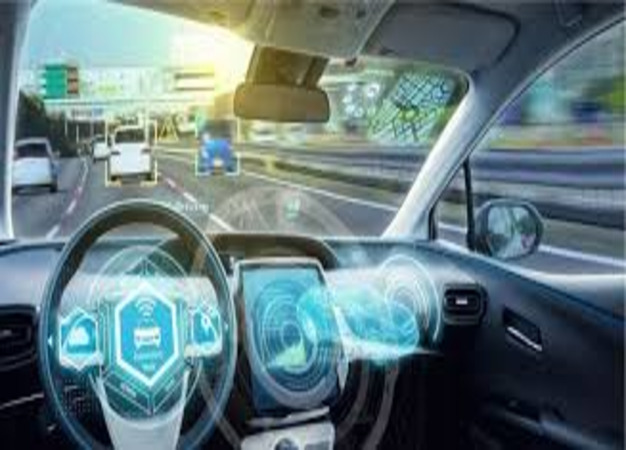CYBER SECURITY and Biometrics in Travel
February 9, 2026
Computer Application Information and Research Institute

AI can be defined as “the study of agents that receive precepts from the environment and perform actions” It is essentially the endeavor of producing systems with human-like cognitive behaviour such as the ability to reason, solve a problem, discover meaning and perceive from past experience and act accordingly. Artificial intelligence (AI) uses data, computers and technology to simulate the human mind’s problem-solving and decision-making abilities. . Today, AI has numerous uses. AI has increasingly gained importance due to its ability to address various problems in business. AI is making our daily lives more convenient and efficient. One of the growing applications of AI is in the field of automotive industry and self-driving cars are an excellent example of that.
In self-driving cars applications of AI can be deployed in conjunction with advanced technological innovations like GPS, radar, camera, cloud services and control signals. AI can further enhance users’ experience by adding value features such as blind-spot monitoring, emergency braking and driver-assist steering. Self-driving cars are essentially built using artificial intelligence. Self-driving vehicles, also known as autonomous or driverless cars, are cars or trucks which do not require human drivers to take control, for safely operating the vehicles. Such cars are composed of sensors in software to control, navigate and drive the vehicle. Today the vehicles are not just machines, they are intelligent, highly advanced, technological, and innovative machines.
As per most industry experts, North America will become the leading market for self driving vehicles. Further, the study states that the United States will be a leader in the autonomous vehicle market. Consumers in China and India appear to be the most interested in the concept of self-driving cars, whereas German consumers appear to be more skeptical of autonomous driving. Although interest in completely autonomous cars has increased in both China and the United States since 2014, the same is not true for other global markets, where interest has either remained steady or declined. By 2035, driverless vehicles are expected to account for 25% of total car sales, with 15% being partially autonomous and 10% being fully autonomous compared to 12.4% in 2025.
Indian roadways are not favorable for self-driving cars as compared to those in the western countries. Indian cities such as Delhi and Mumbai have roads that are congested at all hours of the day. Furthermore, drivers in India do not adhere to traffic regulations. A self-driving car is not trained to anticipate such reckless and dangerous driving behavior. Advanced technology and sensors are used by driverless automobiles to navigate the road safely.
Greetings,
YRCAIRI TECH provides specialized training programs, including:
1) 1-month hands-on project training on TABLEAU,
2) 1-month project training on Data Analytics with Python/Power BI,
3) 3-month training with project on Java Full stack/.Net full stack,
4) 1-month Training on RPA,
5) 4 Hours Training on GIT & GITHUB, and
6) 1-month Training with project on MERN.
KEY FEATURES:
Live Online Sessions, Job Assistance, and Small Batch Sizes of 7-8 students maximum.
This will close in 20 seconds